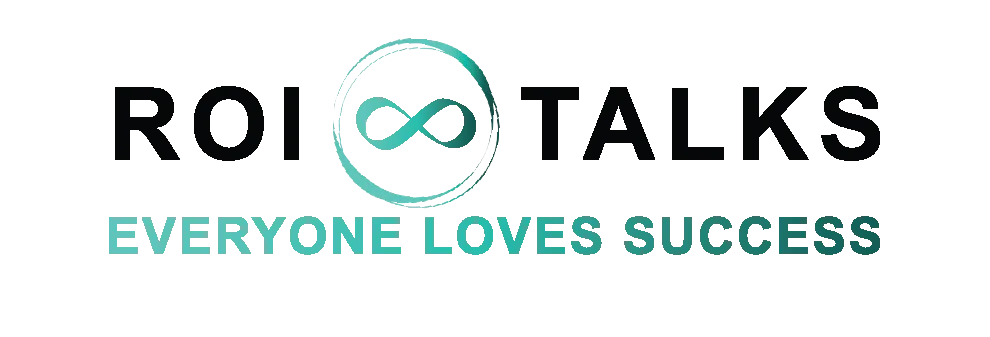
Everyone Loves Success
ROI TALKS
Roi Talks Blog

From Good to Great: How the IKO Principles Can Take Your Leadership to the Next Level?
Leadership is a challenging and rewarding role that requires a wide range of skills and qualities. To be a great leader, you need to have a clear vision, a sense of purpose, and the ability to inspire and motivate others. However, developing these qualities can be a daunting task. Fortunately, the IKO Principles - Inner Self, Knowledge, and Outer Self - offer a set of guidelines that can help you unlock your leadership potential.
Let us explore how you can use the IKO Principles to become a great leader and show you how you can apply these principles to your leadership style.
Inner Self: Manage Your Mindset and Emotions
The Inner Self stage of the IKO Principles is focused on managing your mindset and emotions. As a leader, you need to be able to approach challenges with a clear and wholesome mindset. Here are a few ways you can manage your mindset and emotions:
Practice Mindfulness: Mindfulness is the practice of being present and focused at the moment. According to a study published in the Journal of Applied Psychology, leaders who practice mindfulness are more effective in their roles. By taking a few minutes each day to focus on your breathing and clear your mind, you can reduce stress and improve your ability to make decisions.
Use Wholesome Self-Talk: Wholesome self-talk is the practice of using constructive affirmations to remind yourself of your strengths and abilities. According to a study published in the Journal of Leadership and Organizational Studies, leaders who use constructive self-talk are more effective in their roles. By using constructive affirmations, you can boost your confidence and approach challenges with a positive mindset.
Visualize Success: Visualization is the practice of imagining yourself achieving your goals. According to a study published in the Journal of Business Research, leaders who use visualization techniques are more effective in their roles. By visualizing success, you can boost your confidence and focus on the steps you need to take to achieve your goals.
Knowledge: Continuously Learn and Improve
The Knowledge stage of the IKO Principles is focused on continuously learning and improving. As a leader, you need to have a deep understanding of your industry, your team, and your organization. Here are a few ways you can develop your knowledge and expertise:
Attend Conferences and Workshops: Conferences and workshops offer opportunities to learn from experts in your field and network with other leaders. According to a study published in the Journal of Business and Psychology, leaders who attend conferences and workshops are more effective in their roles.
Seek Feedback and Feed Forward: Feedback and feed-forward are essential for growth and development. According to a study published in the Harvard Business Review, leaders who seek these from their team members are more effective in their roles. By asking for feedback and feed-forward, you can identify areas where you need to improve and make changes to your leadership style.
Read Widely: Reading is a great way to learn about new ideas and trends in your industry. According to a study published in the Journal of Leadership and Organizational Studies, leaders who read widely are more effective in their roles. By reading books, articles, and research papers on topics related to your industry and leadership, you can stay informed and up-to-date.
Outer Self: Communicate Effectively and Build Relationships
The Outer Self stage of the IKO Principles is focused on using effective communication and building relationships. As a leader, you need to be able to communicate your vision and inspire and motivate your team. Here are a few ways you can improve your communication skills and build stronger relationships:
Use Deep Listening: Deep listening is the practice of listening carefully to what others are saying and responding with mindfulness. According to a study published in the Journal of Business and Psychology, leaders who use listening skills are more effective in their roles. By listening carefully to your team members and showing that you value their input, you can build stronger relationships and create a more positive work environment.
Use Clear Language: Clear and concise language is essential for effective communication. According to a study published in the Journal of Leadership and Organizational Studies, leaders who use clear and concise language are more effective in their roles. By using simple language to communicate your vision and goals, you can ensure that everyone on your team understands what you are trying to achieve.
Build Trust: Trust is essential for effective leadership. According to a study published in the Journal of Business Ethics, leaders who build trust with their team members are more effective in their roles. By being honest, transparent, and reliable in your interactions with your team, you can build trust and create a more positive and productive work environment.
Final Note
Becoming a great leader requires a combination of skills and qualities that can be developed over time. The IKO Principles - Inner Self, Knowledge, and Outer Self - offer a powerful framework for unlocking your leadership potential. By managing your mindset and emotions, continuously learning and improving, and using effective communication and relationship-building skills, you can inspire and motivate your team to achieve great things.
Remember, great leadership is not just about achieving results, but also about creating a wholesome and productive work environment where team members feel valued and supported. By using the IKO Principles and continuously learning and improving, you can become the kind of leader that people want to follow.
In conclusion, the IKO Principles offer a powerful set of guidelines for becoming a great leader. By managing your mindset and emotions, continuously learning and improving, and using effective communication and relationship-building skills, you can inspire and motivate your team to achieve great things. By applying these principles to your leadership style, you can create a positive and productive work environment where team members feel valued and supported.
So take some time to reflect on your leadership style and consider how you can apply the IKO Principles to your own leadership journey. With these principles in mind, you can become a great leader and make a positive impact on your team and organization.
Remember, great leaders are not born - they are made. By using the IKO Principles and continuously learning and improving, you can unlock your leadership potential and achieve your goals.
ROI TALKS™
Marina Plaza - Office 1004 -1006
Dubai Marina, Dubai, UAE




